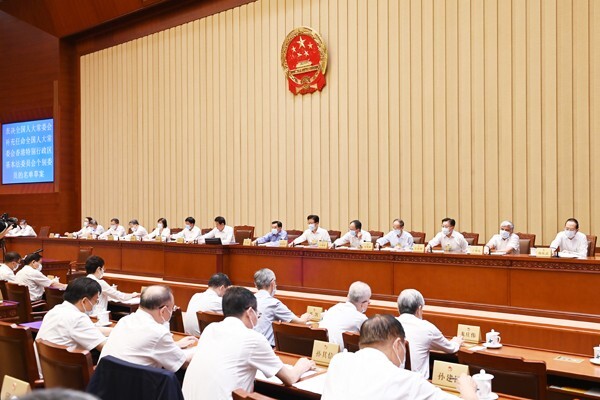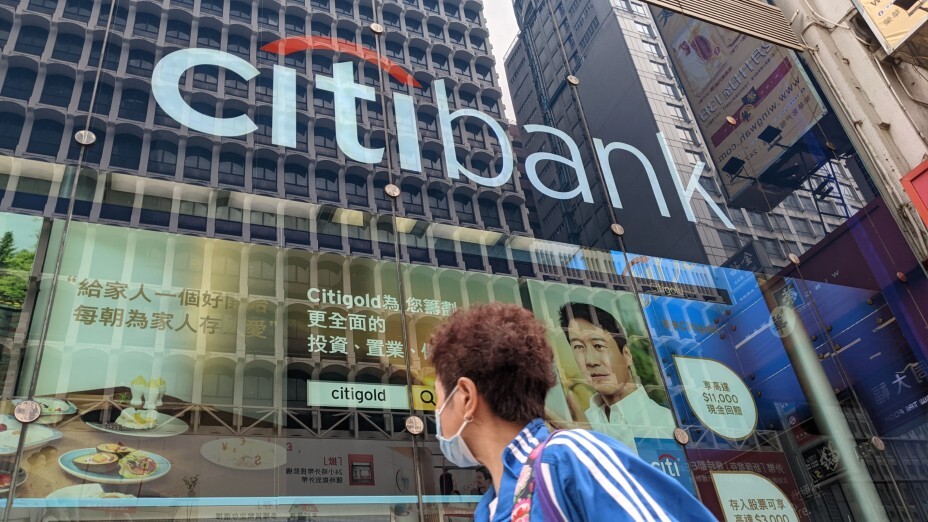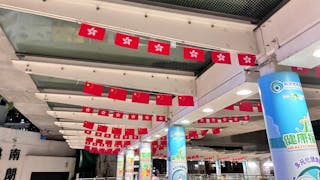全國人大常委會暫緩將《反外國制裁法》納入港澳《基本法》附件三的決定,不僅表明中國當局需要進一步研究 ,同時也是考慮如何令有關法律對港澳特別行政區金融業的影響降到最低。
中央支持香港 延續金融地位
全國人大常委譚耀宗表示,押後表決意味中央需要更多時間研究法律和考慮其後果,中央政府支持香港繼續成為一個國際金融中心、貿易中心和航運中心。
因此,中國的一些官員擔心《反外國制裁法》對香港作為國際金融中心的影響。 如果澳門未來幾年要設立證券交易所,加入《反外國制裁法》會否對澳門的經濟產生影響,還需要更仔細和更深入的研究。
北京航空航天大學副教授田飛龍認為,《反外國制裁法》關乎香港經貿穩定和投資者信心,因此立法要非常審慎。全國港澳研究會副會長劉兆佳則表示,不清楚中央研究後,會用什麼方式表達對外國制裁的反應,是否繼續通過將《反外國制裁法》納入《基本法》附件三,抑或通過行政手段。
完整引入條例 或引更多訴訟
《中華人民共和國反外國制裁法》共有16條規定,其中第12條和第14條引起了金融界人士的關注。第12條規定,「任何組織和個人均不得執行或者協助執行外國國家對我國公民、組織採取的歧視性限制措施」;第14條則規定,「任何組織和個人不執行、不配合實施反制措施的,將依法追究法律責任」。
第12條如果納入港澳《基本法》,很可能引發內地個人和組織與外資銀行的訴訟。因為實施外國的制裁,跨境法律糾紛可能會增加,導致金融界的營運比以往任何時候都更加複雜。
第14條規定,任何組織和個人不執行、不配合實施反制措施的,當局將依法追究法律責任。這一條如果納入港澳《基本法》,也會引發比以往更多的法律訴訟。
有人擔心,如果《反外國制裁法》納入港澳《基本法》嚴格執行,可能會削弱部分(即使並非全部)外國投資者,尤其是銀行家的信心。
8月17日,全國人大常委會會議召開時,香港行政長官林鄭月娥表示,如果通過把《反外國制裁法》納入香港《基本法》,可能會再引起憂慮,她已提出向人大常委會建議透過本地立法的方法實施。
一些觀察家也擔心,一旦《反外國制裁法》納入香港《基本法》附件三,如果美資銀行被要求執行美國政府實施的制裁,肯定會遭到中央和特區政府採取的反制裁措施反制,果真如此,這些美資銀行很可能會成為法律和政治的夾心人。一些銀行最終會選擇離開香港,從而令香港國際金融的地位受到影響。一些金融界人士已經遊說特區政府,看看有沒有辦法盡量減少影響的範圍。

放出試探氣球 調整實施範圍
對於《反外國制裁法》遲遲未納入港澳《基本法》附件三的一種解釋是,中央可能試探外國投資者和銀行家,以及當地金融界的反應。放出這種試探氣球並不意味《反外國制裁法》不會在香港和澳門實施,而是可能調整其實施範圍,並由特區政府決定其實施方式。
田飛龍補充說,《反外國制裁法》仍然有很多細節問題,例如香港本地立法與國家制裁程序、負責機構的協調,亦要深入研究在港企業面臨外國制裁及中國反制裁時如何作出商業決策、能否申請豁免等。
田飛龍指出,香港社會提出的意見、問題還需進一步細化、研究。中央非常審慎,因為立法關乎香港經貿穩定,要穩定投資者信心,同時將市場衝擊降到最低。不過,他強調,將《反外國制裁法》引入香港,仍然有必要性和迫切性,因為單靠香港力量,不足夠應付美國制裁,要中央支持。
一位香港立法會議員表示,結果取決於中美關係,中美關係可能會受到阿富汗持續的政治危機影響,而《反外國制裁法》延遲納入香港可能是「好事」。

金融業添憂慮 多研究是好事
香港銀行業的初步反應是,本地銀行業普遍歡迎《反外國制裁法》暫時推遲引入香港。儘管如此,銀行業的一些專業人士認為,延遲只是暫時的。他們仍然擔心在香港實施《反外國制裁法》的技術問題。
如果將《反外國制裁法》納入港澳《基本法》,就需要明確特區政府有關機構的職責,以及與中央政府如何協調。 《反外國制裁法》第4條規定,國務院有關部門可以決定將直接或者間接參與制定、決定、實施歧視性限制措施的個人、組織列入反制清單。至於香港和澳門方面與國務院合作的機構仍有待界定,儘管兩地金融管理局和國安機構可能會發揮關鍵的調查和協調作用。
綜上所述,無論將《反外國制裁法》納入港澳《基本法》的嘗試,是否測試本地金融業人士反應的晴雨表,這種嘗試都已經引起了金融業界的憂慮,更不用說影響一些外國銀行家和投資者的信心了。如果香港要保持其國際金融中心的地位、澳門要在未來幾年設立新的證券交易所,中央及香港和澳門的官員需要更多時間,研究該法律對當地金融業影響。
在香港特區政府以更堅決的方式維護國家安全,積極追捕2019年反修例運動中違法和參與非法活動的人,以及一些香港人「以腳投票」離開香港之際,把《反外國制裁法》引入香港,無疑會是為一劑猛藥,不僅影響外國投資者的信心,也令本地金融業人擔憂。因此,花些時間研究其影響,至少在短期內是解決焦慮的最佳方法。
The Dynamics of Delaying Anti-Sanctions Law for Hong Kong
The temporary decision of the Standing Committee of the National People’s Congress (SCNPC) to delay the incorporation of the Anti-Sanction Law into the Appendix 3 of the Basic Law of both Hong Kong and Macau shows not only the need for Chinese authorities to study further, but also the consideration of how to minimize the impacts of the law on the banking sectors of the special administrative regions of Hong Kong and Macau.
According to the sole Hong Kong member of the SCNPC, Tam Yiu-chung, the delay meant that the central authorities need more time to conduct their study of the law and its ramifications, and that the Chinese government supports Hong Kong to continue to be an international financial and monetary center.
By implications, some officials of SCNPC of the People’s Republic of China (PRC) are concerned about the impacts of the anti-sanctions law on the financial and monetary center of Hong Kong. If Macau is going to develop its new securities and bond center in the coming years, whether the integration of the anti-sanction law would affect Macau economically would need more careful and in-depth study.
Tian Feilong, an associate professor at Beijing University of Aeronautics and Astronautics, has commented that the Anti-Sanctions Law affects the stability of Hong Kong’s economy and commerce and the confidence of investors. As such, a “very careful” consideration is necessary. Lau Siu-kai, vice-president of the Chinese Association of Hong Kong and Macau Studies, has remarked that it is uncertain what methods would be used by the central government to deal with the sanctions from foreign states after its in-depth study, that it remains unclear whether the Anti-Sanctions Laws would be incorporated into the Basic Law, and that administrative measures would perhaps be used instead of utilizing the Anti-Sanctions Law directly.
The PRC’s Anti-Sanctions Law has 16 stipulations in which Articles 12 and 14 have raised the concern of the elites in the financial and monetary sectors. Specifically, Article 12 says that any organization and individual cannot implement or cannot assist the discriminatory and restrictive sanctions measures adopted by foreign countries on PRC citizens and organizations; moreover, if organizations and individuals violate this stipulation and infringe the legal rights of PRC citizens and organizations, these citizens and organizations can seek redress through the people’s court to request stopping their rights from being infringed and to seek monetary compensations.
Article 12, if incorporated into the Basic Law of Hong Kong and Macau, would likely trigger court cases between mainland individuals and organizations, especially foreign banks, which may carry out the sanctions imposed by foreign countries. Cross-border legal disputes would likely increase, leading to more complex operations in the financial and monetary sectors than ever before.
Article 14 says that any organization and individual who does not implement or conform to the Anti-Sanctions Law would be pursued on their legal responsibilities. This Article, if incorporated into the Basic Law of Hong Kong and Macau, would also trigger more legal cases than before.
It is worried that a strict implementation of the Anti-Sanctions Law, if it were integrated into the Hong Kong and Macau Basic Law, would likely undermine the confidence of some, if not all, foreign investors, especially bankers.
On August 17, when the SCNPC meeting convened, Hong Kong Chief Executive Carrie Lam said that the attempt at integrating the Anti-Sanctions Law into Hong Kong had already caused some anxieties, and that she had suggested the central government to implement the law through the enactment of a local legislation in the Hong Kong Special Administrative Region (HKSAR).
Some observers expressed their concern that, under the circumstances in which the Anti-Sanctions Law were incorporated into the HKSAR Basic Law, if US banks are required to carry out sanctions imposed by the US government, such implementation would surely encounter anti-sanctions measures adopted by PRC and HKSAR authorities. If so, these US banks would likely become legal-political sandwiches. Some of them would eventually prefer to leave the HKSAR, thereby causing impacts on Hong Kong as an international financial and monetary center. Some elites in the financial and monetary sector have lobbied the HKSAR government to see whether exemptions would be made to minimize the scope of the impacts.
One interpretation of the delay in incorporating the Anti-Sanctions Law into the Basic Law of Hong Kong and Macau is that the central authorities might test the opinions of the foreign investors and bankers as well as the local financial and monetary elites. This testing balloon does not mean that the Anti-Sanctions Law would not be implemented in Hong Kong and Macau, but the scope of its implementation would perhaps be adjusted and the way in which the law would be implemented may be delegated to the local authorities.
Tian Feilong added that one challenge is to decide whether some foreign enterprises would be allowed to apply for exemptions from the Anti-Sanctions Law if the law were incorporated into Hong Kong and Macau. Moreover, if local legislation were enacted in Hong Kong and Macau, the unresolved issues include how would such local legislation be made in conformity with the nation-wide sanctions procedures and what would be the central-local institutions responsible for coordination work. These are important technical issues that remain to be resolved. Tian, however, stresses that it remains imperative for the Anti-Sanctions Law to be injected into the Hong Kong setting, because the HKSAR alone cannot cope with the sanctions from the US.
A Hong Kong legislator remarked that the outcome depends on the Sino-US relations, which may be affected by the ongoing political crisis in Afghanistan, and that the delay in incorporating the Anti-Sanctions Law into the HKSAR may be “good.”
The initial response from the Hong Kong banking sector is that local banks generally welcome the temporary postponement of the law. Nevertheless, some professionals in the banking sector believe that the delay is merely temporary. They still worry about the technicalities of implementing the Anti-Sanctions Law in Hong Kong.
If the Anti-Sanctions Law were incorporated into Hong Kong and Macau’s Basic Law, the local institutions, their responsibilities, and their coordination with the central government would need to be spelt out. Article 4 of the Anti-Sanctions Law says that the departments concerned under the PRC’s State Council can decide the name list of those individuals and organizations directly or indirectly implementing the discriminatory and restrictive sanctions measures from the foreign governments. The institutions on the Hong Kong and Macau side working with the State Council remain to be delineated, although the local Monetary Authority and the national security apparatus will likely be expected to play crucial, investigatory and coordinating role.
In conclusion, regardless of whether the attempt at incorporating the Anti-Sanctions Law into the Basic Law of Hong Kong and Macau represented a barometer of testing the elite opinion in the local financial and monetary sector, such attempt has already aroused the anxieties of the elites in the financial-monetary industry, not to mention the confidence of some foreign bankers and investors. If the HKSAR is to maintain its financial and monetary status, and if Macau is going to build up its new securities and bond center in the coming years, it needs more time for the PRC authorities, together with the local officials of Hong Kong and Macau, to study the ramifications and impacts of the law on the local financial and monetary sector. At a time when a more determined approach is adopted by the HKSAR authorities to protect national security by actively pursuing those people who violated the law in the 2019 protests and who participated in other illegal activities, and at a juncture when some Hong Kong people vote with their feet by leaving the city, a more sweeping approach of handling the Anti-Sanctions Law in Hong Kong would perhaps become a heavy dosage of medicine with detrimental impacts on not only the confidence of foreign investors but also the worries of local monetary and financial elites. Buying time to study the impacts is the best approach of tackling the ongoing anxieties at least in the short run.
原刊於澳門新聞通訊社(MNA)網站,本社獲作者授權轉載。




































